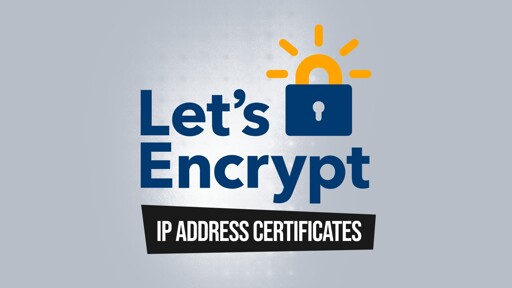Who benefits from this? Even though Let’s Encrypt stresses that most site operators will do fine sticking with ordinary domain certificates, there are still scenarios where a numeric identifier is the only practical choice:
Infrastructure services such as DNS-over-HTTPS (DoH) – where clients may pin a literal IP address for performance or censorship-evasion reasons.
IoT and home-lab devices – think network-attached storage boxes, for example, living behind static WAN addresses.
Ephemeral cloud workloads – short-lived back-end servers that spin up with public IPs faster than DNS records can propagate.



I don’t see how? Normal HTTP/TLS validation would still apply so you’d need port forwarding. You can’t host anything on the CGNAT IP so you can’t pass validation and they won’t issue you a cert.
You can totally host something on carrier-grade NAT using techniques like NAT hole punching.
You don’t get control of the incoming port that way. For LetsEncrypt to issue a certificate primarily intended for HTTPS, they will check that the HTTP server on that IP is owned by the requesting party. That has to live on port 80, which you can’t forward on CGNAT.